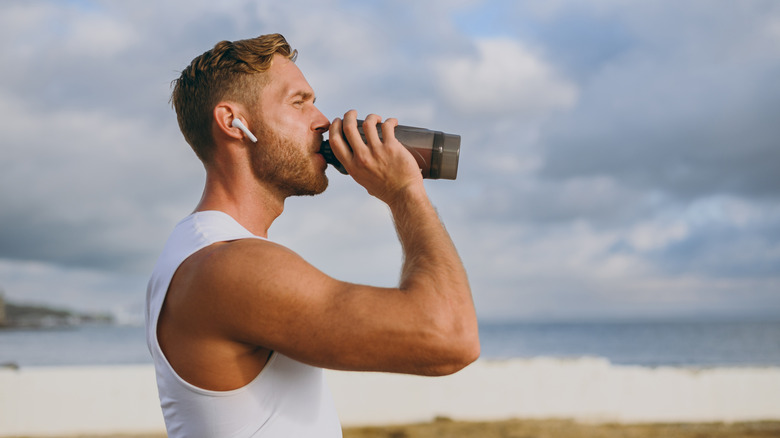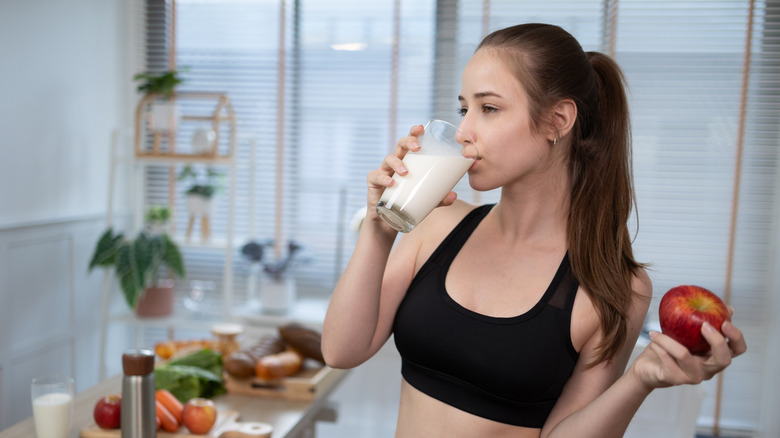The Wildly Unexpected Drink That's More Hydrating Than Water For Beating The Summer Heat
On a hot summer's day, most people reach for a glass of water, a refreshing coconut water, or colorful sports drinks like Gatorade or Powerade to avoid heat stroke while doing outdoor activities. However, unfortunately for the lactose-intolerant, milk may be even more hydrating than water, according to a study published in the American Journal of Clinical Nutrition.
The study looked at 13 beverages, including iced tea, hot tea, still water, sparkling water, a sports drink, and milk, to determine which drinks promote long-term hydration. It should come as no surprise that consuming water (both still and sparkling) hydrates the body quickly. However, researchers found that "drinks containing the highest macronutrient and electrolyte contents were the most effective at maintaining fluid balance."
In other words, if you're looking for long-term hydration without running to the bathroom a million times to pee, milk is the best choice for two reasons. First, it contains a combination of sugar, protein, fat, vitamins, and minerals, which slows down how quickly liquid exits your body. Second, just like an electrolyte packet, milk has salt and potassium. These substances are essential for retaining water and replacing salt that's easily lost while sweating. "Replacing lost fluid just with plain water means the body has too much water and not enough salt, so to even things out, it will get rid of water by producing urine," explained St. Andrews University's School of Medicine professor Ron Maughan to the BBC.
When should you drink milk instead of water for hydration?
As an essential component of life, there's simply no replacement for H20. While a big jug of Organic Valley milk shouldn't be on your ultimate packing list for a successful beach trip, there are a few situations when drinking milk may be better for you than chugging water. Milk is an ideal choice after intense exercise, such as lifting, high-intensity training, or competitive sports.
Although the study doesn't specifically look at chocolate milk, many hikers swear by the sweet beverage, claiming it helps with post-hike recovery due to its protein-to-carbohydrate ratio. If you finish a run by a convenience store, grabbing a bottle of low-fat chocolate milk could be a good choice.
However, keep in mind that alternatives like almond, soy, or oat milk aren't as effective as their dairy counterparts. Nutrition expert Samantha Cassetty, RD, MS, shares with Real Simple, "Since almond milk lacks the protein and carbohydrates found in milk, it may not help you retain fluid to the same degree, though it still contributes to your overall hydration status." While traveling overseas, American tourists might notice that there are annoying differences with European tap water, too, so it might be best to opt for a cold glass of milk.

